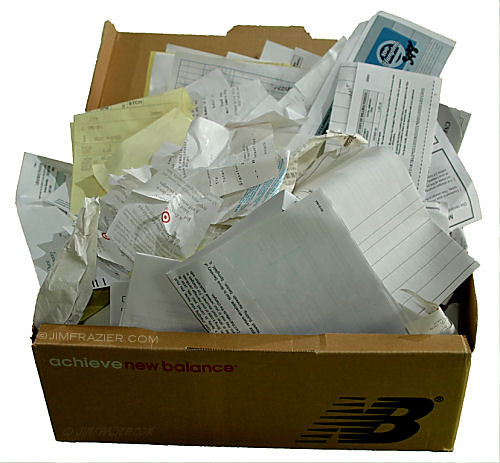But not this time. He said, "Yeah, I heard something about this...a big Supreme Court decision, right?"
I brightened. "Yep, it's a pretty big topic in my world right now." At least it's more exciting than sales tax holidays and local rate increases.
As the conversation veered into what HE did for a living, I felt the need to expound upon the potential exposure he had (this is why I don't have any friends). "Just out of curiosity, do you do any work in Pennsylvania?"
"Yep, I have a couple of really good clients there. Why, do you know anyone who's looking?" At least we had in common the fact that we were always working.
"Did you know that headhunting (employment agency) services are taxable in Pennsylvania?"
"What are you talking about? It's a service. Services aren't taxable." He's from Illinois so he's allowed this bit of naiveté.
"They are in a couple of states - including Pennsylvania."
"Yeah, but I'm in Chicago. I never even go to Pennsylvania...I do everything by phone."
"Yeah, but the services are being received in Pennsylvania. And with that new Supreme Court decision, they can go after you, even if you've never set foot in PA. How much do you bill to PA in a year?" By the way, cool people just say PA instead of all those syllables.
He kind of looked off into space, "Oh, at least $200,000."
"Yep, you should be worrying."
Again, no friends.
People who sell services almost never realize that the services might be taxable somewhere. In the past, that probably didn't make any difference because of the Quill rule about physical presence. My new friend never visited PA and had no physical presence there. Therefore, no problem.
But in a post-Wayfair world, the physical presence hurdle has disappeared. Now it's just a question of volume of sales. So if a service provider does enough business in the state, he is probably going to be liable for taxes.
Three pieces of advice that apply to everyone, but to service providers in particular:
1. List the states in which you sell more than, oh, say $100,000 per year, or make 200 transactions per year (these are the Wayfair thresholds which may or may not be the minimums*). I hope your accounting system can provide this information. Otherwise, find a temp to do some serious spreadsheeting (that temp might be taxable too!).
2. Is what you sell taxable in those states? This is a different type of research. Use whatever research tools you have available.
3. If the result is that your sales in a state exceeds those thresholds, contact your friendly sales tax professional. Then, based on her advice, panic.
*Most states seem to be gravitating towards these numbers. But not all of them.
Jim Frazier - The Sales Tax Guy
http://salestaxguy.blogspot.com
See the disclaimer on the right.


















